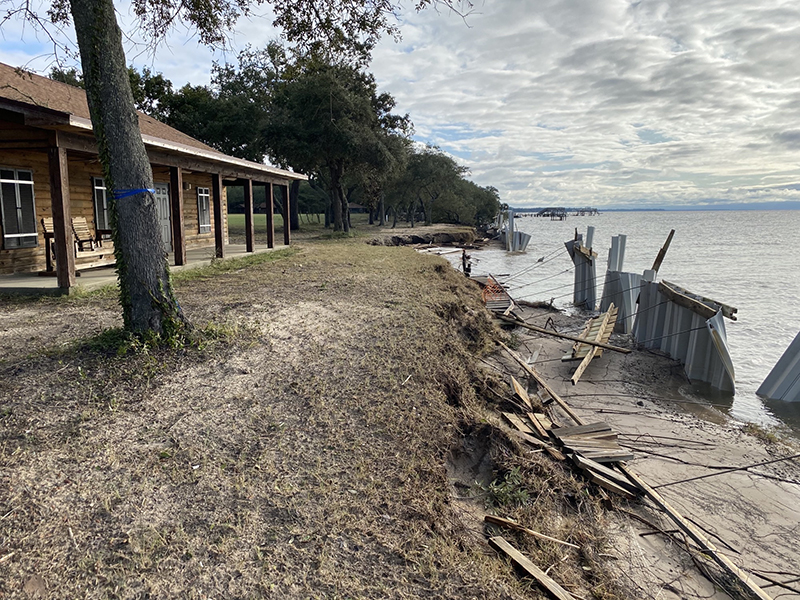Hurricane Sally damaged several UF/IFAS facilities and research sites in the Florida Panhandle last week. The teaching, research and outreach activities at these locations support the region’s agricultural and natural resources industries, local residents, families and youth.
“All of our personnel are safe and accounted for, which is always our priority after a disaster. Getting out to our sites had been slower than usual due to unsafe travel conditions, but now we have made good progress on getting our facilities up and running again,” said Jeanna Mastrodicasa, UF/IFAS associate vice president for operations.
“Unfortunately, we anticipate significant damage to research crop variety trials at the West Florida Research and Education Center in Jay due to those fields being flooded,” Mastrodicasa said. The North Florida Research and Education Center facilities in Quincy and Marianna experienced some flooding but have stayed open, she said.

Some of the most severe damage occurred at 4-H Camp Timpoochee. Located on the Choctawatchee Bay in Niceville, Camp Timpoochee typical hosts hundreds of youth each summer, though this year the camp was closed due to COVID-19. The site is part of the University of Florida’s inventory of educational facilities across the state.

Hurricane Sally destroyed the camp’s seawall, which was already damaged from Hurricane Michael. This means the camp’s shoreline and cabins are now more vulnerable to wave action and future storms, Mastrodicasa said. Hurricane Sally also damaged the dock used by campers to reach the bay.
The damage will require innovative solutions for safety and rebuilding, she said, but no decisions have been made at this time.
Several UF/IFAS Extension offices, which are owned and maintained by counties, were damaged, the offices in Washington County and Escambia county were flooded and are undergoing minor to major renovations due to water damage. According to Pete Vergot, director of the UF/IFAS Extension Northwest District, Extension faculty are working on clean-up and all other offices are now operational.
“Even though our faculty in Escambia and Santa Rosa counties are dealing with damage to their own homes, our people are still out there helping the community, including working at points of distribution for water and ice,” Vergot said.
UF/IFAS faculty have also been working with local farmers to assess the economic impact of Hurricane Sally on the region’s industries. UF/IFAS economists predict that a combination of crops, livestock and aquaculture products lost as a result of Hurricane Sally will likely be valued between $55 million and $100 million.
 0
0
